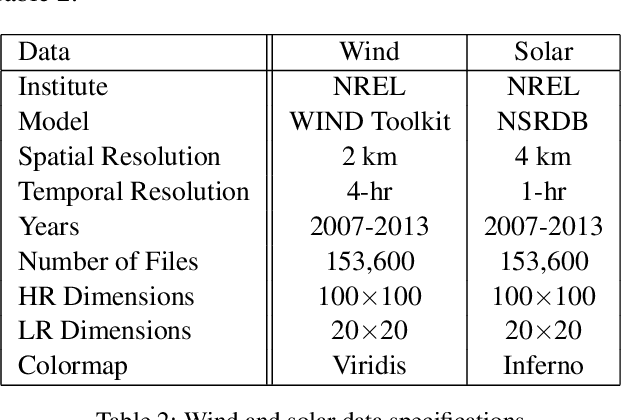Lucien Werner
Multi-market Energy Optimization with Renewables via Reinforcement Learning
Jun 13, 2023Abstract:This paper introduces a deep reinforcement learning (RL) framework for optimizing the operations of power plants pairing renewable energy with storage. The objective is to maximize revenue from energy markets while minimizing storage degradation costs and renewable curtailment. The framework handles complexities such as time coupling by storage devices, uncertainty in renewable generation and energy prices, and non-linear storage models. The study treats the problem as a hierarchical Markov Decision Process (MDP) and uses component-level simulators for storage. It utilizes RL to incorporate complex storage models, overcoming restrictions of optimization-based methods that require convex and differentiable component models. A significant aspect of this approach is ensuring policy actions respect system constraints, achieved via a novel method of projecting potentially infeasible actions onto a safe state-action set. The paper demonstrates the efficacy of this approach through extensive experiments using data from US and Indian electricity markets, comparing the learned RL policies with a baseline control policy and a retrospective optimal control policy. It validates the adaptability of the learning framework with various storage models and shows the effectiveness of RL in a complex energy optimization setting, in the context of multi-market bidding, probabilistic forecasts, and accurate storage component models.
WiSoSuper: Benchmarking Super-Resolution Methods on Wind and Solar Data
Sep 23, 2021



Abstract:The transition to green energy grids depends on detailed wind and solar forecasts to optimize the siting and scheduling of renewable energy generation. Operational forecasts from numerical weather prediction models, however, only have a spatial resolution of 10 to 20-km, which leads to sub-optimal usage and development of renewable energy farms. Weather scientists have been developing super-resolution methods to increase the resolution, but often rely on simple interpolation techniques or computationally expensive differential equation-based models. Recently, machine learning-based models, specifically the physics-informed resolution-enhancing generative adversarial network (PhIREGAN), have outperformed traditional downscaling methods. We provide a thorough and extensible benchmark of leading deep learning-based super-resolution techniques, including the enhanced super-resolution generative adversarial network (ESRGAN) and an enhanced deep super-resolution (EDSR) network, on wind and solar data. We accompany the benchmark with a novel public, processed, and machine learning-ready dataset for benchmarking super-resolution methods on wind and solar data.
 Add to Chrome
Add to Chrome Add to Firefox
Add to Firefox Add to Edge
Add to Edge